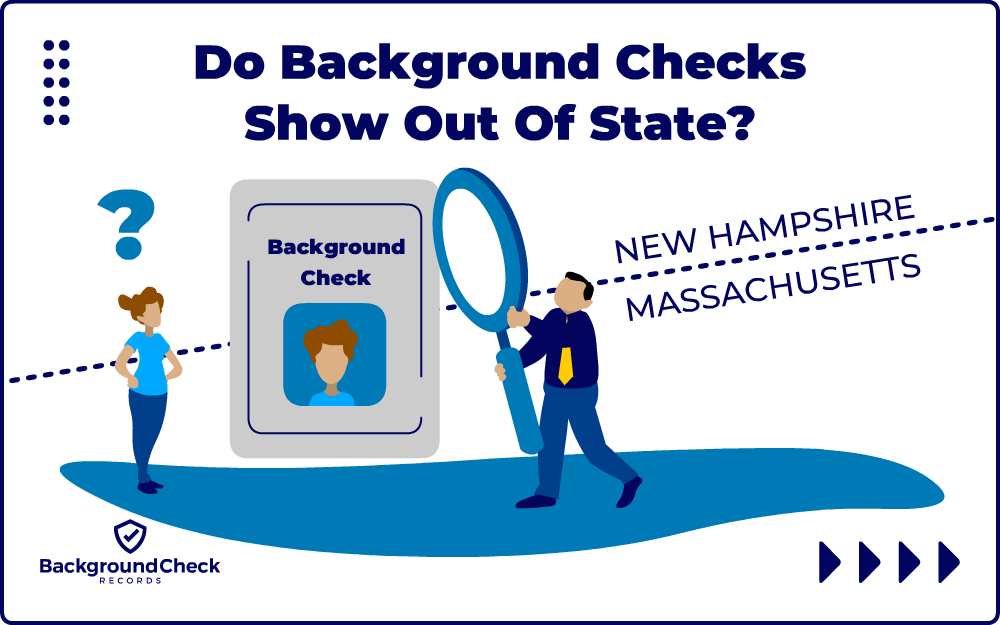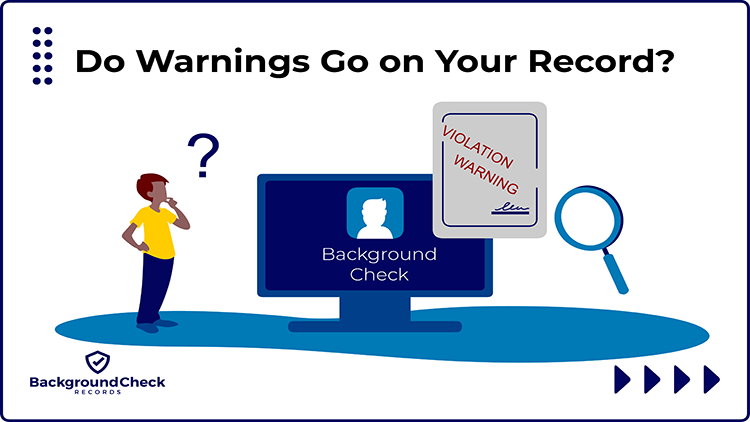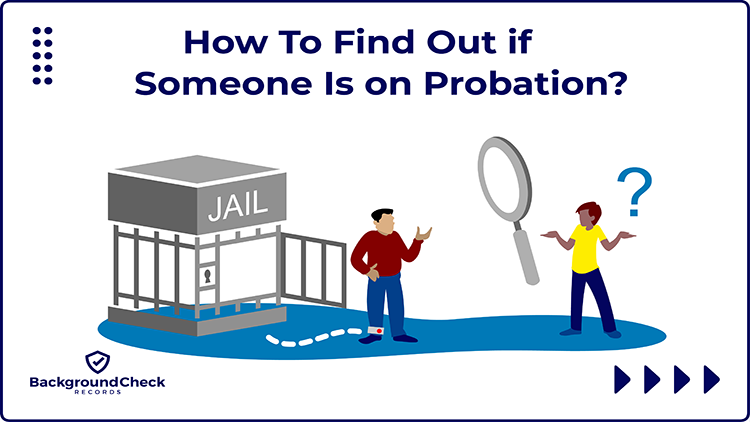Do Background Checks Show Out of State Charges? 1 Step to Find Out
People often ask if background checks reveal out-of-state charges. It’s a reasonable concern, as arrest charges, even without a conviction, can prevent someone from getting a job or being admitted to a university.
Fortunately, there’s a way for individuals to check any changes that occurred in other parts of the country, and the one step to find out is to run a background check on yourself. it only takes a single step to find out, simply as the agency if it’s a level 1 or 2 background check. In addition, checking if your state has ban-the-box, sealing, or expunging the records may be a viable option for some.
Do Background Checks Reveal Charges from Other States?
Yes, they do, but it depends on several factors. For instance, the Equal Employment Opportunity Commission (EEOC) forbids employers from discriminating against prospective employees due to pending arrest charges.
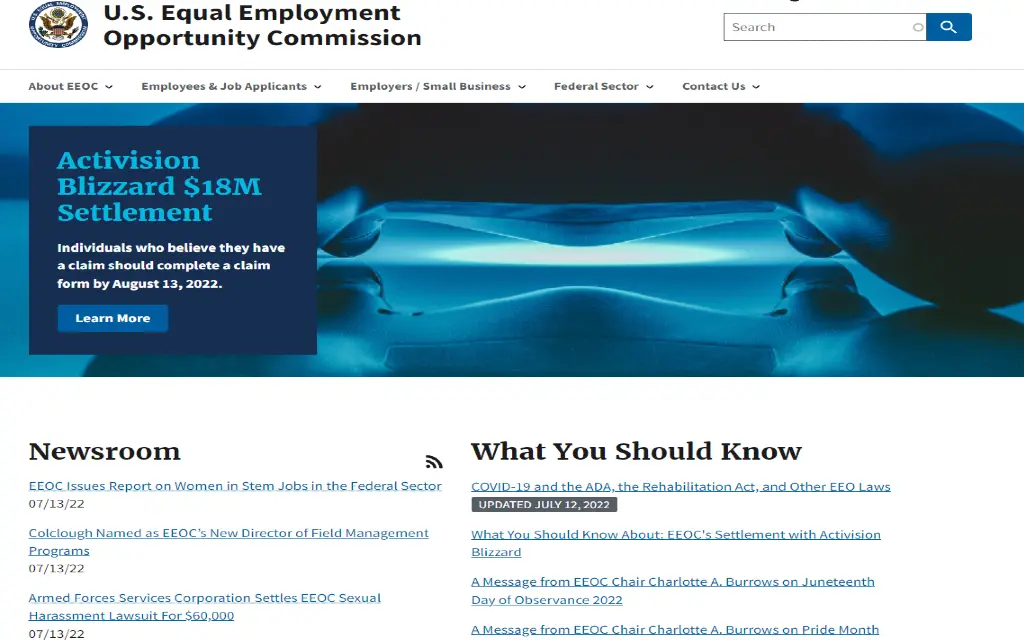
But, there’s no federal mandate that stops employers from using them as a condition for employment. However, each US state has its own law regarding arrest records in hiring decisions.
The following table roughly entails what information employers can and can’t ask about in each state and gives an idea if someone’s out of state charges will show up within the state the background check is being conducted:
| No Restrictions |
Expunged & Sealed Records |
Arrest Records |
Questions are Restricted |
| Alabama |
Colorado |
Arizona |
Georgia |
| Alaska |
Connecticut |
California |
Maryland |
| Arkansas |
Delaware |
Florida |
Minnesota |
| District of Columbia |
Illinois |
Hawaii |
New Jersey |
| Idaho |
Indiana |
Maine |
Oregon |
| Iowa |
Kansas |
Massachusetts |
Texas |
| Kentucky |
Mississippi |
Michigan |
Washington |
| Louisiana |
Nebraska |
Montana |
|
| Missouri |
New Hampshire |
New York |
|
| Nevada |
Ohio |
Pennsylvania |
|
| New Mexico |
Oklahoma |
Wisconsin1 |
|
| North Carolina |
Utah |
|
|
| North Dakota |
Virginia |
|
|
| Rhode Island |
|
|
|
| South Carolina |
|
|
|
| South Dakota |
|
|
|
| Tennessee |
|
|
|
| Vermont |
|
|
|
| West Virginia |
|
|
|
| Wyoming |
|
|
|
When it comes to firearms, the FBI prohibits someone from purchasing a firearm if they’re mentally unfit, have misdemeanor or felony records, or possess other disqualifications.2
However, like for employment purposes, each state has its own gun background check mandate. For example, if someone’s been charged with a disqualifying offense in Tennessee without a final disposition of a trial, the check takes 15 days.3
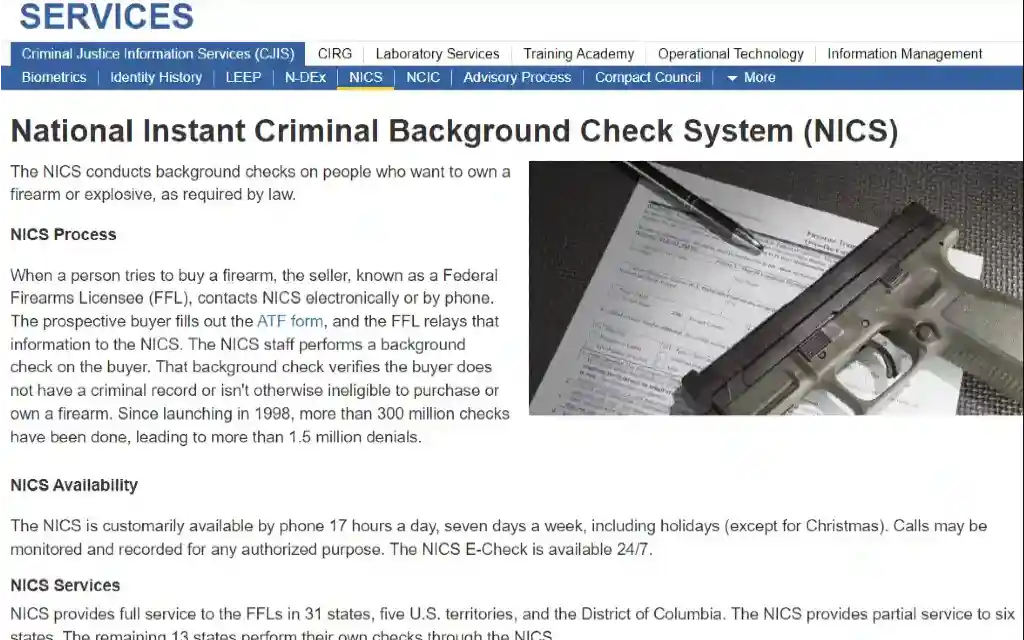
For those applying or renewing a professional license, they can show up unless an individual seals or expunges the record. Depending on someone’s situation and their state’s legislation, they may have to come clean about any charges or convictions to the licensing board.4
Do Background Checks Check Every State? Does a Background Check Include All States?
Even though all states have their own laws regarding charges such as screening devices for employment, licensing, or self-defense, a person can’t just depend on those alone. They have to do their own research as well since some types of background checks will check every state.
For instance, they need to ask about the two types of background checks many companies use Level 1 or state checks, and Level 2, aka federal checks which are all discussed below.
Types of Background Checks & What Shows Up Out of State
There are several kinds of background checks, and the most common type is a criminal background check which is required for most jobs, apartment renting, and when being considered as a candidate for a homeless shelter.
So when wondering about the duration of an apartment background check or waiting for a criminal check from a job, it’s important to know that various levels of background checks use different levels of scrutiny. However, the most common reason people have to go through them is to apply for a loan, work in the child care industry, earn special certifications, and more.
What typically comes up on a background check includes a person’s former employers, past and present addresses, driving records, and any charges or convictions.
The next sections cover the differences between state (Level 1) and federal background (Level 2) checks.
What Does A State (Level 1) Background Check Consist Of?
A Level 1 background check – sometimes called a state background check—involves screening individuals based on their name and employment background only. This usually reveals if someone is a registered sex offender or has other criminal records. The subject is ineligible for hire if they possess delinquency or felony records.5
Out of state charges will now show up on level 1 checks.
What Does a FBI Background Check Show? What Does a Federal Background Check Reveal?
A Federal FBI, or Level 2 check, consists of a fingerprint background check conducted on a state and national level. It’s required for jobs like nursing or any other occupation associated with caring for vulnerable populations. This kind of check can uncover juvenile records, even if sealed.6
The terms Level 1 and Level 2 are used by Florida Statutes, particularly the Chapter 435 Florida Statute.
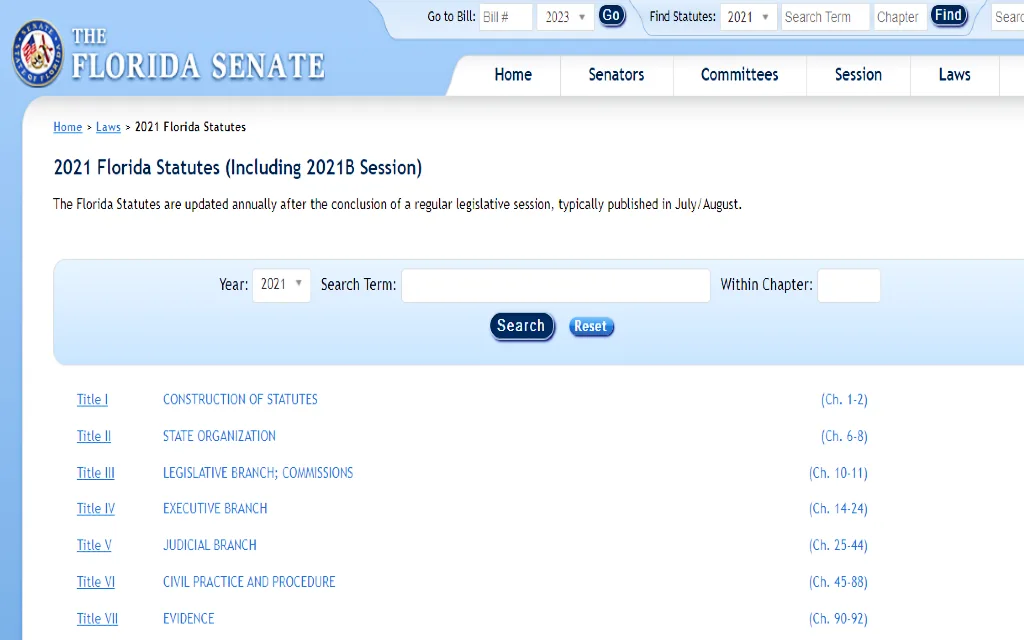
Plus, Florida is the only US state that uses the words “Level 1” and “Level 2. Our state’s charges are likely to show up on level 2 screenings unless there are other state laws in place that prevent them from being revealed before employment, such as ban the box laws.7
States That Have Ban-the-Box Laws & How it Applies to Out of State Charges
Those asking if background checks show out-of-state charges or if criminal records show up in other states will be glad to hear about Ban-the-Box laws since in some states, they prevent employers from asking about charges and convictions during the initial screening process.
The states below have Ban-the-Box laws in place:
- California: Can’t inquire about criminal records prior to hiring
- Colorado: Can’t inquire about criminal records on first applications nor forbid people with criminal records from applying for a job
- Connecticut: Can’t inquire about criminal records on first applications
- DC: Can only inquire about criminal history after offering the job
- Hawaii: Can only inquire about criminal history after offering the job
- Illinois: Can only inquire about criminal history during an interview or after a job offer
- Massachusetts: Can’t inquire about misdemeanors that are over three years old nor ask about criminal records on first applications
- Minnesota: Can only inquire about criminal history during an interview or after a job offer
- New Jersey: Can only inquire about criminal records after a job candidate’s first interview
- New Mexico: Can’t inquire about criminal records on first applications
- Oregon: Can only inquire about criminal history during an interview or after a job offer
- Rhode Island: Can’t inquire about criminal records on first applications
- Vermont: Can’t inquire about criminal records on first applications
- Washington: Can’t inquire about criminal records on first applications nor forbid people with criminal records from applying for a job8
Note, that there are further intricacies for each state’s law so be sure to check the legislature in your jurisdiction.
How Deep or Far Back Do Most Out of State Criminal Background Checks Go?
Some individuals wonder how far back most criminal background checks go. That depends on whether the criminal background check is a Level 1 or Level 2 type. The length of each kind of background check is discussed further below.
Level 1:Level 1 background checks can go from three to seven years. Since it only involves someone’s employment history and name, the information it gains on their criminal history is restricted.
Level 2: Level 2 background checks cover more ground since they encompass seven to fifteen years of a person’s criminal history. This is crucial as it’s mandatory for healthcare jobs and adopting children.9
Do Background Checks Across State Lines Only Show Convictions? Or Do Pending Charges & Dropped Charges Show?
When determining if dropped charges appear on background checks inside or outside of state lines, it’s important to understand that although background checks primarily show convictions, they also bring up any pending or dropped charges. Nevertheless, this depends on many variables like a state’s laws governing pending and/or dropped charges and the severity of the crime.
For example, California background checks show all pending charges, but a state like Arkansas reveals felony charges but not misdemeanor charges.10
Dropped charges can show up on background checks, but whether it can affect someone’s chance of getting a job or renting a home is determined by an employer’s or landlord’s discretion. However, a person can prevent them from showing up by sealing or expunging the record.11
Sealing or Expunging Charge Records, State-by-State
Though there’s no federal mandate to seal or expunge charge records, it doesn’t stop someone from doing so if their state allows it. Here are the sealing and expungement laws of each US state:
- Alabama: Per Alabama Code Section 15-27-1, -2, courts are permitted to advocate for expungement of non-conviction misdemeanors and felonies. Also, Alabama Code Section 41-9-625 mandates that state arrest charges must be eliminated from records if the subject isn’t cleared of an offense within a month.
- Alaska: According to Alaska Statutes Section 12.62.160(b)(8), non-conviction records are confidential. Plus, Alaska Statutes Section 12.62.180(b) allows record sealing for non-conviction records related to mistaken identity cases. Alaska Statutes Section 22.35.030 forbids courts from publishing trials that ended in acquittals or dismissals.
- Arizona: Per Arizona Statutes Section 13-4051, courts can seal people’s records if they are wrongly accused of a crime. (Starting around Dec 2022/Jan 2023, non-conviction records can be sealed thanks to Arizona Revised Statutes Section 13-9011.)
- Arkansas: According to Arkansas Code Sections 1409, 1410, and 1415 respectively, courts can seal arrest records if charges aren’t filed within 12 months, dismissed, or there’s no conviction.
- California: Per California Penal Section 851.93, anyone arrested and cleared of charges after January 2021 is granted record relief.
- Colorado: Colorado Revised Statutes Title 24-72-705 mandates that courts seal acquitted or dismissed charges. According to Colorado Revised Statutes Title 24-72-701.5, courts can expunge arrest records without charges.
- Connecticut: Per Connecticut General Statutes Section 54-142a, courts can erase acquitted or dismissed arrest charges. Also, employers can’t violate Connecticut General Statutes Section 31-51i by asking about expunged arrest records.
- Delaware: According to Delaware Code Title 11 Section 4372, if the accused party wins a case, then their record is expunged. People need permission from the SBI to receive arrest record relief per Delaware Code Title 11 Section 4373.
- District of Columbia: District of Columbia Code Title 16 Sections 803 and 806 mandate that courts seal non-conviction records after two to 10 years pass. Plus, employers and law enforcement have limited access to them.
- Florida: Per Florida Statutes Chapters 943.0585 and 943.059, expungement or sealing of first offender non-conviction records is up to the courts. Also, law enforcement and employers have restricted access to sealed records.
- Georgia: According to Georgia Code Section 35-3-37, dismissed charge records have restricted access by the general public with some exceptions.
- Hawaii: Hawaii Revised Statutes Section 831-3.2 states that only authorized personnel like law enforcement can view charge records. In addition, people have to go to court to request record expungement.
- Idaho: Per Idaho Code Section 67-3004 (10), individuals can request to seal their non-conviction records.
- Illinois: According to Illinois Statutes Chapter 20 Section 2630-5.2, people can get their charge records sealed upon request. Furthermore, discharged or acquitted convictions can be expunged.
- Indiana: Indiana Code Section 35-38-9-1 states that appealed charge records can be sealed or expunged after 12 months. A criminal justice agency is the only authorized party that can access sealed records.
- Iowa: Per Iowa Code Sections 901C.1 and 901C.2, dismissed and acquitted charge records should be expunged once they’re six months old. Also, according to Iowa Code Section 692.17(1), these records can’t be stored on a computer.
- Kansas: Kansas Statutes Section 22-2410 mandates that courts should expunge dismissed or acquitted records.
- Kentucky: According to Kentucky Statute Sections 431.076 and 510.300, courts have permission to expunge dismissed misdemeanor or felony record trials.
- Louisiana: Per Louisiana Laws Code of Criminal Procedure Article 976, criminal records that didn’t end in a conviction can be expunged. However, law enforcement can access them under certain circumstances.
- Maine: Maine Revised Statutes Title 16 Section 703 states that charge records should be confidential after 12 months. Nevertheless, they can be revealed to those who inquire about any charges on a subject’s record per Maine Revised Statutes Title 16 Section 705.
- Maryland: According to Maryland Criminal Procedure Code Sections 10-103 and 10-105, charge records can be expunged when they’re three years old. (Probation before judgment records aren’t included.) Plus, Maryland Criminal Procedure Code Section 4-512 allows the destruction of such records after another three years.
- Massachusetts: Per Massachusetts General Laws Chapter 276 Section 100C, courts seal acquitted or dismissed charges. Also, charge records shouldn’t bar someone from working for the public sector.
- Michigan: Michigan Compiled Laws Section 28.243 mandates that the MSP (Michigan State Police) gets rid of arrest and biometric records if the subject is released without charges. Additionally, said records have to be eliminated from Internet systems within two months if the subject is arrested but has dismissed charges.
- Minnesota: According to Minnesota Statutes Section 609A.02, if the petition of records resulted in the petitioner’s favor, records can be expunged. Per Minnesota Statutes Section 299C.11, if arrest records over the past decade revealed no convictions, they have to be destroyed.
- Mississippi: Mississippi Code Section 99-15-59 states that any misdemeanor records that didn’t result in a guilty verdict should be destroyed.
- Missouri: Per Missouri Revised Statutes Section 610.140(6), an individual can have their arrest record expungement if they adhere to waiting periods and other criteria. According to Missouri Revised Statutes Section 610.122, if an arrest is predicated on false information, the record should be expunged quickly.
- Montana: Montana Code Section 44-5-202 mandates that charge records in law enforcement possession that didn’t result in convictions must be returned to the courts or the individual upon request.
- Nebraska: According to Nebraska Revised Statute Sections 29-3523(3) and 29-3523(6), charge records should be sealed after a short waiting period and they shouldn’t be available to the general public after a few years. Furthermore, any results that are due to police errors should be expunged.
- Nevada: Per Nevada Revised Statute Section 179.255, a defendant of a court case can advocate for charge records after said trial ends. Plus, Nevada Revised Statute Section 179.285 allows the records to be sealed if they qualify.
- New Hampshire: New Hampshire Revised Statute Section 651:5(II) states courts can annul non-conviction records and act as if the arrest never happened.
- New Jersey: According to New Jersey Statutes Sections 2C:52-1 and 2C:52-6, no petitions are required for expunging charge records.
- New Mexico: Per New Mexico Statutes Section 29-3-8.1(a), administrative authority can’t expunge arrest records related to some misdemeanor offenses. Also, HB 370 allows someone to expunge non-conviction records.
- New York: New York Criminal Procedure Law Sections 160.50 and 160.55 state that if a case results in an individual’s favor, courts can seal the record.
- North Carolina: According to North Carolina General Statutes Section 15A-146, an individual can get their record expunged if they’re found innocent or their charge is dismissed. In addition, anyone who has multiple charges in an incident can solicit for partial record expunction.
- North Dakota: Per North Dakota Supreme Court Administrative Rule 41, public access to charge records that are acquitted or dismissed is restricted by court rule.
- Ohio: Ohio Revised Code Section 2932.52 allows the sealing of records involved in dismissed or overturned convictions.
- Oklahoma: According to Oklahoma Statutes Title 22 Section 22-18, someone can seal their records as long as there aren’t any felony convictions. Also, they can expunge records that resulted in a reversal or acquittal.
- Oregon: Per Oregon Revised Statute Section 137.255(1)(b), a person can get their arrest records sealed after two months if there are no filed charges or if said charge is acquitted or dismissed.
- Pennsylvania: Pennsylvania Consolidated Statutes Section 9121(b)(2)(i) states that arrest records (with no conviction) are confidential when three years old. Additionally, Pennsylvania Consolidated Statutes Section 9122 permits partial expungement of non-conviction charges that are one and a half years old.
- Rhode Island: Per Rhode Island General Laws Title 12 Section 12-1-12.1, individuals can get their arrest records sealed if the charges are acquitted, dismissed, or exonerated.
- South Carolina: According to South Carolina Code of Laws Section 17-1-40(B)(1), someone can request record expungement if proven innocent or has dismissed charges. (Law enforcement can hold on to them for 42 months, though.)
- South Dakota: South Dakota Codified Laws Section 23A-3-27 mandates that charge records can be sealed or expunged after 12 months if the subject doesn’t face litigation. (There’s no time limit if said charges ended in an acquittal or are dismissed.) Per South Dakota Codified Laws Section 23A-3-30, a defendant can have their arrest record expunged if proven innocent, and it’s in the general public’s best interest.
- Tennessee: Per Tennessee Code Section 40-32-101(a)(b), if public charge records result in an acquittal or dismissal, courts should eliminate them.
- Texas: According to Texas Code Criminal Procedure Articles 55.01(a) and 55.01(2)(B), if an individual’s arrest didn’t result in a guilty verdict, and it’s been six months to three years since the waiting period passed, then their records can be expunged.
- Utah: Utah Code Section Code 77-40-104 states that a person can request expungement of their record a month after their arrest and if they have dismissed or unfiled charges. (Waiting periods don’t apply to acquittals.)
- Vermont: According to Vermont Statutes Title 13 Section 7603, courts can seal or expunge all charge records.
- Virginia: Virginia Code Section 19.2-392.2 mandates that courts should expunge charge records ending in dismissals or acquittals. Per Virginia Code Section 19.2-392.4, employers can’t ask about charge records.
- Washington: Per Revised Code of Washington Section 10-97-060, if a criminal justice case ends in favor of the defendant, courts can seal their records after two years. In addition, such records can be sealed to protect the subject’s privacy.
- West Virginia: According to West Virginia Code Section 61-11-25, if someone doesn’t have a felony conviction, then courts can expunge dismissal and acquittal records.
- Wisconsin: Wisconsin Statutes Section 165.84(1) states that records can be expunged if the individual isn’t charged or is cleared of charges. Plus, their fingerprints can be returned.
- Wyoming: Per Wyoming Statutes Section 7-13-1401, courts should expunge records six months after a charge dismissal.12
Note, that one must seal or expunge the record in which the crime originated.
How to Run a Nationwide Employment Background Check
If anyone’s interested in running a federal background check to check for out-of-state charges, they can obtain an Identity History Check offered by the FBI.
Unfortunately, this and other types of FBI checks only cover felonies and federal crimes. But, there are other ways individuals or companies can obtain nationwide background checks. They can request a check from each state if they’re a qualified agency or more commonly, perform a level 1 background check for each state an individual has lived in.
Professionals should always opt for an FCRA-compliant background checker and/or a state official background check to be sure they follow state and federal laws. While individuals can run personal background checks through some state databases and state laws prohibit them from doing so, they may use third-party sites.
Regardless, here’s a list of every US state along with its approved background check agency and website.
Whether someone wants to conduct a background check throughout every state or just one, doing this one thing – checking their record before the actual background check – can provide insight and alleviate worry about pending charges potentially showing up on the screening.
Frequently Asked Questions
How Do I Request an Out of State Background Check Report? How to Get a Background Check From Another State
If an individual just moved from one state to another and needs to obtain a background check, they have to follow a few steps to get it. They may have to travel to their previous state and visit a sheriff’s office/police station or courthouse to inquire about any records. Alternatively, someone can utilize online ordering services to save themselves a long trip to another state.
Are Gun Background Checks Federal or State (Level 1 or Level 2)?
It’s a little bit of both since the FBI’s NICS (National Instant Criminal Background Check System) provides a background check service for FFLs or Federal Firearms Licensees. The Federal Firearm Licensee reaches out to the NCIS before handing the ATF form to potential buyers. Once finished, the Federal Firearm Licensee sends the information to the NICS so it can commence background checks on the applicant. This service is available in DC and 31 states. (Thirteen US states conduct their own NICS background checks.)
What Kind of Background Checks Do Companies Run? State or Federal Background Checks?
About 92 percent of employers carry out background checks according to a poll conducted by SHRM (Society for Human Resource Management).
When it comes to state checks, some of them can’t conduct checks that go back after 7 years like California and Washington state. Others like Iowa and Maine can’t go back after 10 years.
Federal background checks can even bring up records from district and appeals courts.
1 Employment Background Checks and the Use of Arrest Records by State. (n.d.). Backgroundchecks.com. Retrieved July 9, 2022, from <https://www.backgroundchecks.com/learning-center/employment-background-checks-and-the-use-of-arrest-records-by-state>
2 Background Checks for Guns: What Do You Need to Know? (n.d.). CriminalWatchDog. Retrieved July 9, 2022, from <https://www.criminalwatchdog.com/faq/background-checks-for-guns>
3 Background Check Procedures. (n.d.). Giffords. Retrieved July 9, 2022, from <https://giffords.org/lawcenter/gun-laws/policy-areas/background-checks/background-check-procedures/>
4 Expungements and Your Professional License | Joseph Lento Law Firm. (n.d.). Professional License Defense. Retrieved July 9, 2022, from <https://www.professionallicensedefensellc.com/expungements-and-your-professional-license>
5 What is the Difference between Level 1 and Level 2 Background Screening? – Edge Information. (2016, January 5). Edge Information Management. Retrieved July 9, 2022, from <https://edgeinformation.com/2016/01/what-is-the-difference-between-level-1-and-level-2-background-screening/>
6 VECHS Definitions. (n.d.). Florida Department of Law Enforcement. Retrieved July 9, 2022, from <https://www.fdle.state.fl.us/Background-Checks/VECHS-FAQs/Definitions.aspx>
7 States With Ban-the-Box Laws | Law Details by State and Chart. (2020, March 23). Patriot Software. Retrieved July 9, 2022, from <https://www.patriotsoftware.com/blog/payroll/states-ban-the-box-law/>
8 How Far Back Does A Level 2 Background Check Go? -. (2022, April 6). WayImprove Logo. Retrieved July 9, 2022, from <https://wayimprove.com/how-far-back-does-a-level-2-background-check-go/>
9 How Far Back Does A Level 2 Background Check Go? -. (2022, April 6). WayImprove Logo. Retrieved July 9, 2022, from <https://wayimprove.com/how-far-back-does-a-level-2-background-check-go/>
10 guide, s. (n.d.). Do Pending Charges Show Up on Background Checks? CriminalWatchDog. Retrieved July 9, 2022, from <https://www.criminalwatchdog.com/faq/do-pending-charges-show-on-background-check>
11 Sandorf, B. (2019, November 1). If Charges Are Dropped Against Someone, Are They Still on Record? ASecureLife.com. Retrieved July 9, 2022, from <https://www.asecurelife.com/if-charges-are-dropped-against-someone-are-they-still-on-record/>
12 50-State Comparison: Expungement, Sealing & Other Record Relief. (n.d.). Collateral Consequences Resource Center. Retrieved July 9, 2022, from <https://ccresourcecenter.org/state-restoration-profiles/50-state-comparisonjudicial-expungement-sealing-and-set-aside/>

